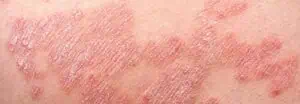Starting Our Journey from Summer to Autumn Skincare
Getting to Know Common Skin Problems During Autumn
Acne Breakouts
Autumn can be a testing time for those prone to acne. The dry air coupled with indoor heating can cause blocked pores and breakouts. Hormonal changes and stress, which might increase during this season, can also add to the problem. Using a gentle cleanser and introducing salicylic acid or benzoyl peroxide can be very useful in dealing with acne. Also, make sure to include antioxidant and omega-3 fatty acid-rich foods in your diet as they help reduce inflammation and promote healthier skin.
Eczema (Atopic Dermatitis)
If you have eczema, your symptoms may become more severe during autumn. Dry, cold air and indoor heating can lead to intense itching and discomfort. To soothe your skin, use unscented and hypoallergenic moisturisers and try to identify triggers, such as harsh soaps or certain fabrics, to prevent further flare-ups.
Psoriasis and Scalp Psoriasis
For those with psoriasis, autumn can be difficult. The lack of sunlight and dry conditions can trigger flare-ups, while the dry air can worsen itchiness and flaking for scalp psoriasis. Regular moisturising, stress management, and dietary supplements like omega-3 fatty acids can be helpful.
Rosacea
Autumn’s fluctuating temperatures can lead to rosacea flare-ups. Protect your skin by using gentle, moisturising products and avoiding triggers like spicy foods, hot drinks and excessive sunlight.
Hives and Cold Urticaria
For some, cold weather can result in hives and cold urticaria. Antihistamines can help alleviate symptoms if you develop hives, but consultation with a healthcare professional is essential if symptoms continue despite preventative measures.
Contact Dermatitis
Helpful Prevention Tips
Essential Moisturising and Choosing the Right Products
Combating Effects of Indoor Heating on Skin
Sun Protection in Autumn
Healthy Diet and Hydration
Professional Help - Consulting with a Dermatologist
Persistent or worsening skin problems during autumn should be addressed by a dermatologist. They can provide personalised treatments and advice, helping you maintain glowing skin throughout the season.
It’s time to embrace autumn, its beautiful colours and cool breeze! But with it, remember to adapt your skincare routine to keep your skin radiant and healthy throughout the season.


